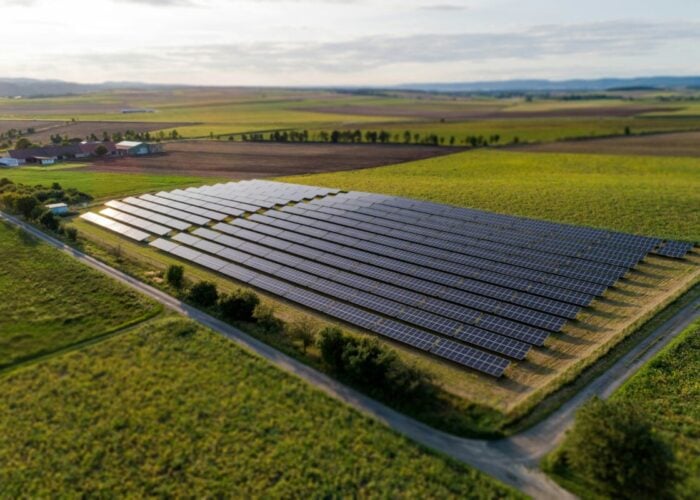A new Photovoltaic Module Technology Center (MTC) in Freiburg, operated by Fraunhofer ISE, has an ambitious goal of reducing efficiency losses from the cell to the module to only 2.5%. Typically, losses from conventional modules result in efficiencies about 10-15% below those achieved at the cell level, according to ISE. However, extensive work already carried out at the institute has demonstrated losses can be reduced to a mere 5%.
“In our R&D work over the past few months, we have succeeded in constructing a PV module with dimensions of 1592mm x 962mm and an efficiency of 15.2%, made up of 60 commercial solar cells having a nominal efficiency of 16.0%. Only 5% of the initial solar cell efficiency was lost,” noted Harry Wirth, director of the photovoltaic modules, systems and reliability division. “Our next goal is to reduce the losses in efficiency from the cell to module level by half, i.e., to a value of 2.5%.”
Try Premium for just $1
- Full premium access for the first month at only $1
- Converts to an annual rate after 30 days unless cancelled
- Cancel anytime during the trial period
Premium Benefits
- Expert industry analysis and interviews
- Digital access to PV Tech Power journal
- Exclusive event discounts
Or get the full Premium subscription right away
Or continue reading this article for free
ISE said that the reduction in losses was attributed to a range of changes, such as using a narrower module border with a special edge encapsulation, which reduced the amount of inactive area. Additionally, the optical and electrical efficiency were improved.
The optical losses are said to occur because of an increase in inactive area, reflection on the glass surface, and absorption in the top coatings. Electrical losses are said to be caused by series resistance in the cell and string connectors. A further issue has been the realisation that gains perceived to be achieved through encapsulation effects do not in fact compensate for these losses overall.
However, a comprehensive characterization of cells, cell connectors, coatings, and glass plates is required, so that the sources of error can therefore be located and minimized.
The new facility is capable of optimizing the soldering processes via a fully automated tabbing and stringing machine, which serves as a reference for the process development and string patterning. For fabricating the modules, a laminator with a useful area up to 1700mm x 1000mm is also available.
The MTC facility also uses a range of computer simulation tools that include finite element analyses as well as analytical models, which can be used to investigate the mechanical stress, electrical losses, and optical efficiency of the actual modules construction.
Finally, precision measurements of an optimized module can be carried out at the accredited CalLab PV Module at Fraunhofer ISE, with a relative accuracy of ±2.3%.






